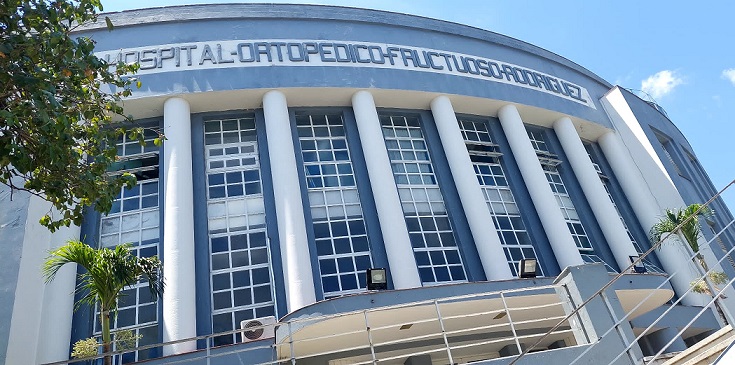
Today I want to tell you what a normal day was like for a student on the Orthopedics in Cuba. Let's go through my day-to-day at the Orthopedic Hospital: Fructuoso Rodríguez in Havana. [ENGLISH VERSION IS BELOW]
8 AM
Como estamos en un país, donde no hay de nada, aquí se ventilan todos los problemas y faltas que tiene el hospital. Algunas se pueden resolver y otras hay que tratar de tapar la herida.
-En menos de 30 minutos, comenzaba la Entrega de Guardia Docente.-
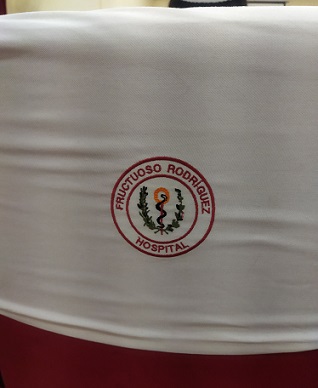
Nuevamente, primera vez que vivía estas presentaciones, nos ayudaron mucho, porque se hablaba de un tema de la asignatura y todo basado en un paciente; que probablemente estaba en alguna cama en el hospital.
9 AM
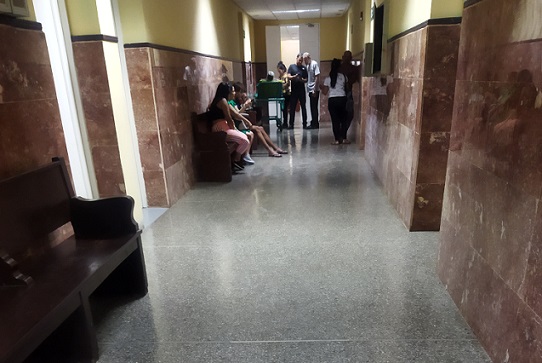
Después tocaba la señora.
10:30 AM
La rotación se me hizo mucho más fácil gracias al equipo médico de mi sala.
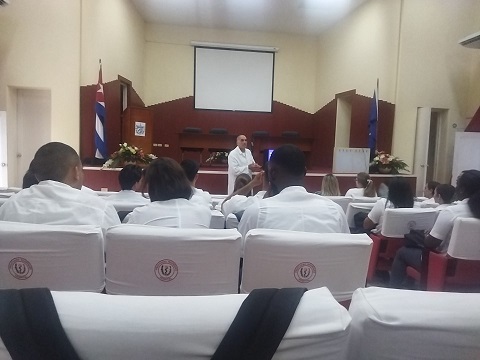
Una libertad a la cual no estábamos acostumbrados.
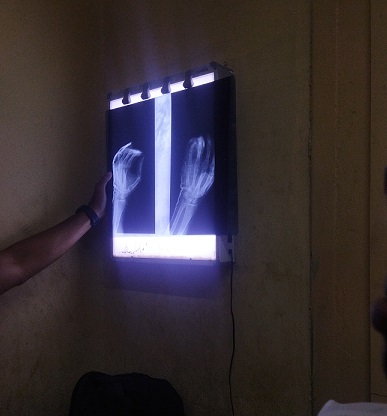
Las fotos utilizadas son de mi propiedad para uso exclusivo en este post


Skipping the part about getting ready for school because there's nothing interesting there.
8 AM
The day started bright and early with the Administrative Shift Handover. For the first time in five years of my career, I witnessed such an event so openly. In these "meetings," the events of the previous day at the hospital are discussed. Since we're in a country where there's a scarcity of everything, all the problems and shortcomings of the hospital are aired here. Some can be resolved, and others need to be covered up.
The hardest part of these meetings is when each department head discusses the availability of beds, and it's sad to see how the hospital is full of patients all needing surgery. Due to the conditions we live in, medical supplies are prioritized for emergencies (or if you have a good contact).
In less than 30 minutes, the Teaching Shift Handover began.

There was no need to move; the department heads left, and the previous day's shift took over. Residents and students had to present an interesting case that had come to the shift or was in the ward.
Again, it was my first time experiencing these presentations, and they helped a lot because they discussed a topic from the subject, all based on a patient; who was probably in a bed in the hospital. You could study the topic and visit the patient to apply what you had learned. Since it was so early, everyone was fresh and absorbed knowledge better. (A positive point for Orthopedics)
The professors participated in the presentations, adding and asking about current practices and treatment plans to follow (this is a plus because the bibliography used in the course is very outdated).
9 AM
It was time to go to the ward. In my case, I was assigned to the Septic Ward, where the infections were (the most common being Osteomyelitis).
Osteomyelitis is a disease that can start from simple things like a hangnail, to car accidents, but it can completely eat away at the bone (look it up on the internet, and the images will surprise you).
Fructuoso is one of the oldest hospitals in my city and one of the most renowned in terms of Orthopedics. The wards and corridors are from ancient times, quite spacious and designed for air and light to enter. Despite being an infection ward, there was rarely a bad smell, and the cleanliness was some of the best I've seen in a hospital.
In the ward, we were assigned 1 or 2 patients, depending on my colleagues' attendance.
During my rotation, I always had the same two patients. A man with spondylodiscitis and a woman with osteomyelitis in her leg (in the femur to be precise) due to a car accident.
The man couldn't walk because he had drains in his back, but every time I entered his room, he had a cup of coffee ready for me, with a piece of chocolate. I won't deny it; I always looked forward to going to his room. We would chat a bit about how his night had been; sometimes the pain kept him from sleeping, and other times, sleeping face down (because of the drains) prevented him from resting.
Still, the man always greeted me with a big smile, and we talked a bit about sports or soccer while I wrote down his progress.
Then it was the woman's turn.
She was from Pinar del Río, and unlike the man, she wasn't much of a talker. I don't blame her either, because on the second day of arriving at the hospital, her mother fell in the bathroom, and her knee had to be operated on. I understood the guilt she felt, so we only spoke when necessary.
I was responsible for documenting the day's progress, and she for answering my questions. Not all patients are the same, and that needs to be respected.
10:30 AM
Time to start the ward round. (The moment when the specialists from the ward go from bed to bed seeing the patients).
This moment was another of my favorites; the ward professor took the time to explain each disease as if we were primary school children (so much so that even the patients understood what he was explaining). The rotation became much easier for me thanks to the medical team in my ward.
After visiting the 14 beds, it was time to return to the theater for our daily conference, which lasted no more than an hour (another positive aspect).

After noon, three things could happen:
- You could enter the classroom (the classroom is inside the ward where we were, so out of professional courtesy, a student from our ward could always enter, as it's considered "home").
- Guard duty was assigned, and you could join it early (which was appreciated because then you didn't have to stay out until 10 at night).
- None of the above applied, and you could go rest (you had to stay at the hospital until 12, after that, you were free to do whatever you wanted, as long as you fulfilled the guard duty hours and entered the classroom).
A freedom we weren't used to.
I prefer not to talk about the classroom because I ended up feeling overwhelmed by it after 2 times, Orthopedic surgeries are very tough - confirming that the surgical aspect is not for me.
About the guard duty, I'll just say that I enjoyed every one of the four shifts I did. I was able to learn reduction maneuvers, X-rays of all limbs, and curious cases that I never imagined.

The best part is that I went from being a patient to being a doctor (when I was a child, almost every year, I went to the hospital with a broken bone or some muscle pain, just a mischievous kid thing).
The freedom of this rotation allowed for some leeway in studying. If you studied every day, you would be very comfortable during exams.
In this rotation, I realized how a positive work environment can drive the improvement of medical staff, and at the same time, the hospital's prestige grows. Most residents (specialists in training) are from Mexico, Colombia, or some African country; these doctors come already with plans to create their clinics or have a somewhat secured job.
With this in mind, they come to excel and develop, which elevates the level of care and the level of Cuban students and residents (if someone next to you is better than you, you want to be like that someone).
In medicine, we all want to be the best for our patients, so the mindset of these foreign residents is the best for achieving that. A very favorable work environment for development.
At first, it was hard to believe all that, I thought it was fake, but little by little, I understood many things, and today, I take away many lessons from my day-to-day at the Fructuoso. I used to come in with low spirits, with little interest, and in the end, I feel more spirited than ever before; my mindset changed a lot during that month.
If you've made it this far, you must imagine that I'm speaking in the past tense because it's over, and that's right, the closing
post of the rotation will come later because there are so many things to tell that I had to split them up.
Thank you for making it this far.
Before I go, I'd like you to tell me, how are the Orthopedic services in your city?
In Cuba, there are many difficulties, but Fructuoso is one of the least affected, even so, we are very behind in terms of technology. I'd love to hear about your experiences when visiting the Orthopedic Hospital.
If you're Cuban, I know the situation is tough outside Havana, but I'd still like to read about your experience being treated by an Orthopedic specialist.
Feel free to comment on anything, and I'll gladly respond.
Now, see you soon.
Posted Using InLeo Alpha